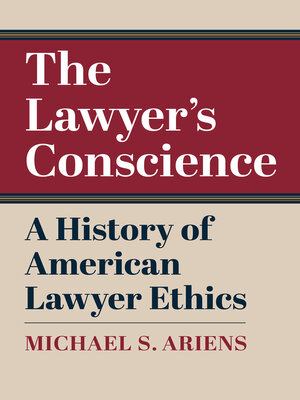
Sign up to save your library
With an OverDrive account, you can save your favorite libraries for at-a-glance information about availability. Find out more about OverDrive accounts.
Find this title in Libby, the library reading app by OverDrive.



Search for a digital library with this title
Title found at these libraries:
| Library Name | Distance |
|---|---|
| Loading... |
In 1776, Thomas Paine declared the end of royal rule in the United States. Instead, "law is king," for the people rule themselves. Paine's declaration is the dominant American understanding of how political power is exercised. In making law king, American lawyers became integral to the exercise of political power, so integral to law that legal ethics philosopher David Luban concluded, "lawyers are the law."
American lawyers have defended the exercise of this power from the Revolution to the present by arguing their work is channeled by the profession's standards of ethical behavior. Those standards demand that lawyers serve the public interest and the interests of their paying clients before themselves. The duties owed both to the public and to clients meant lawyers were in the marketplace selling their services, but not of the marketplace.
This is the story of power and the limits of ethical constraints to ensure such power is properly wielded. The Lawyer's Conscience is the first book examining the history of American lawyer ethics, ranging from the mid-eighteenth century to the "professionalism" crisis facing lawyers today.







